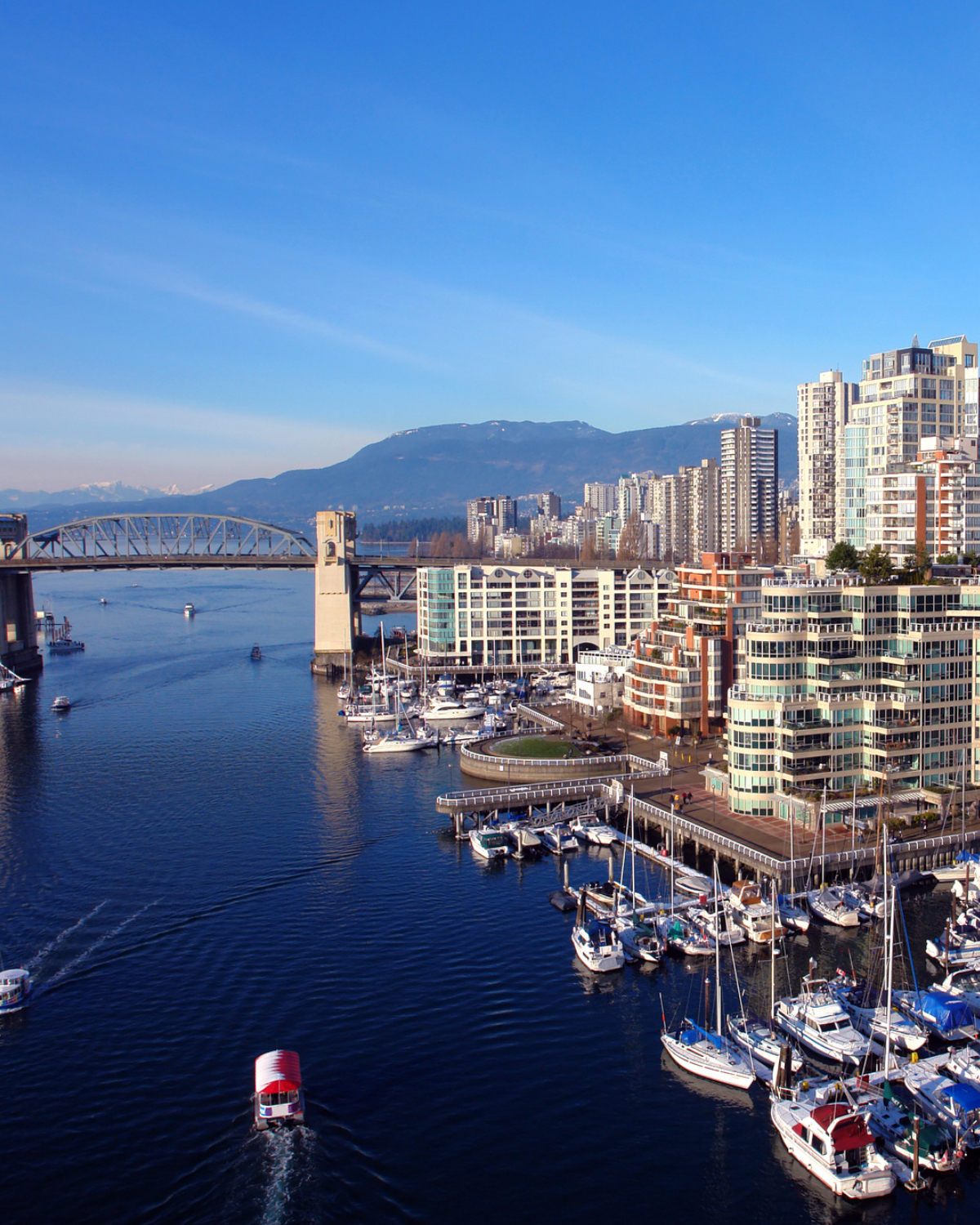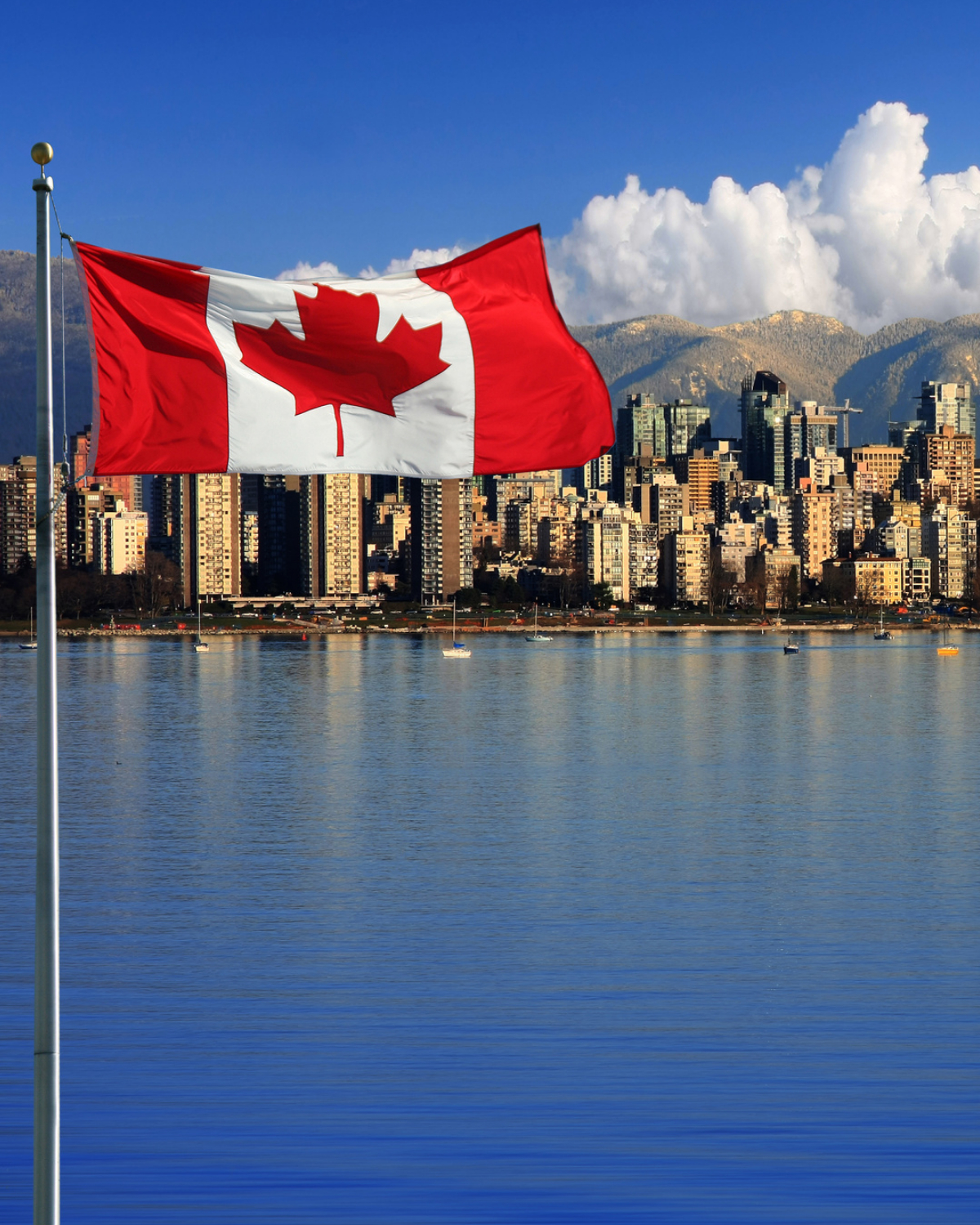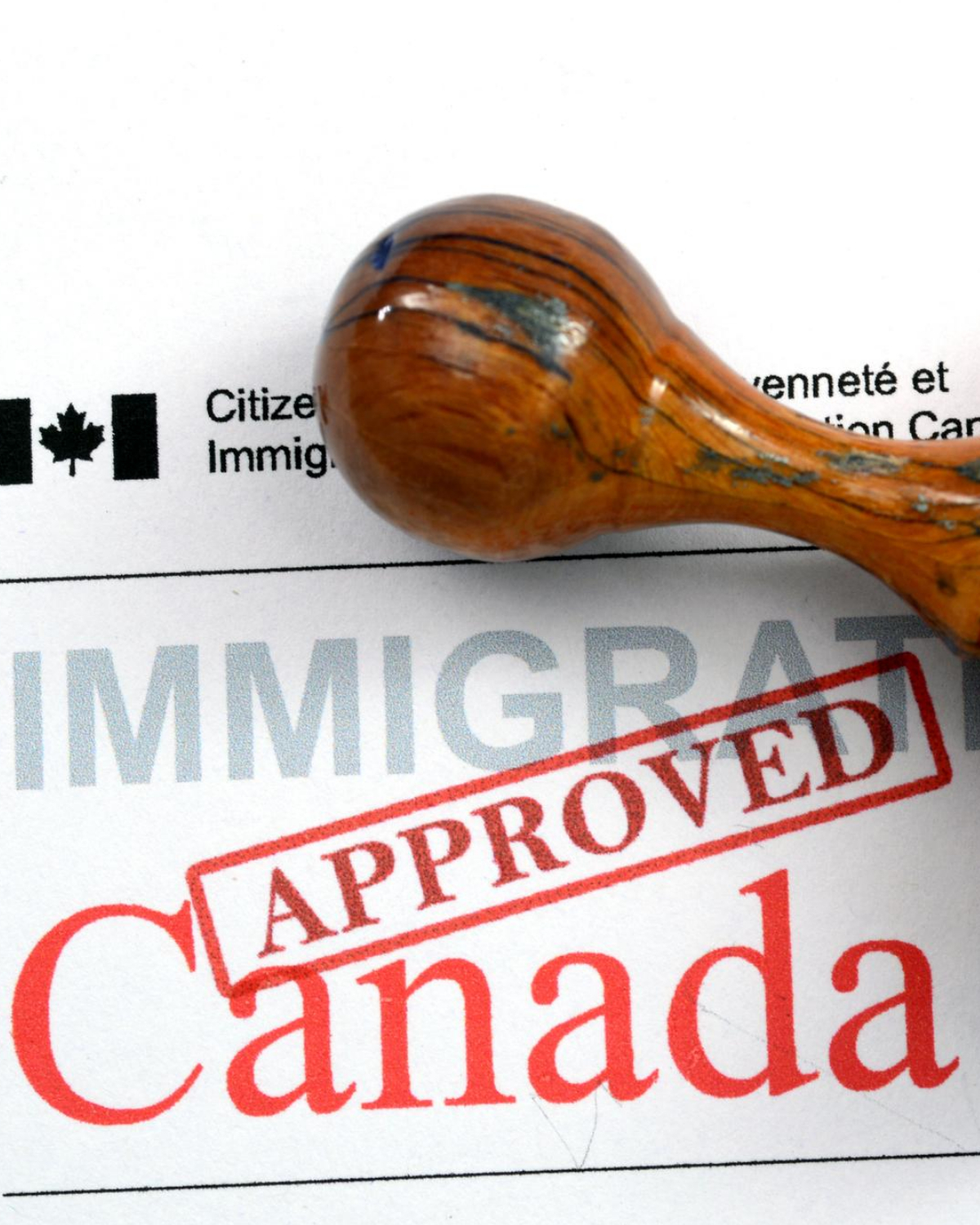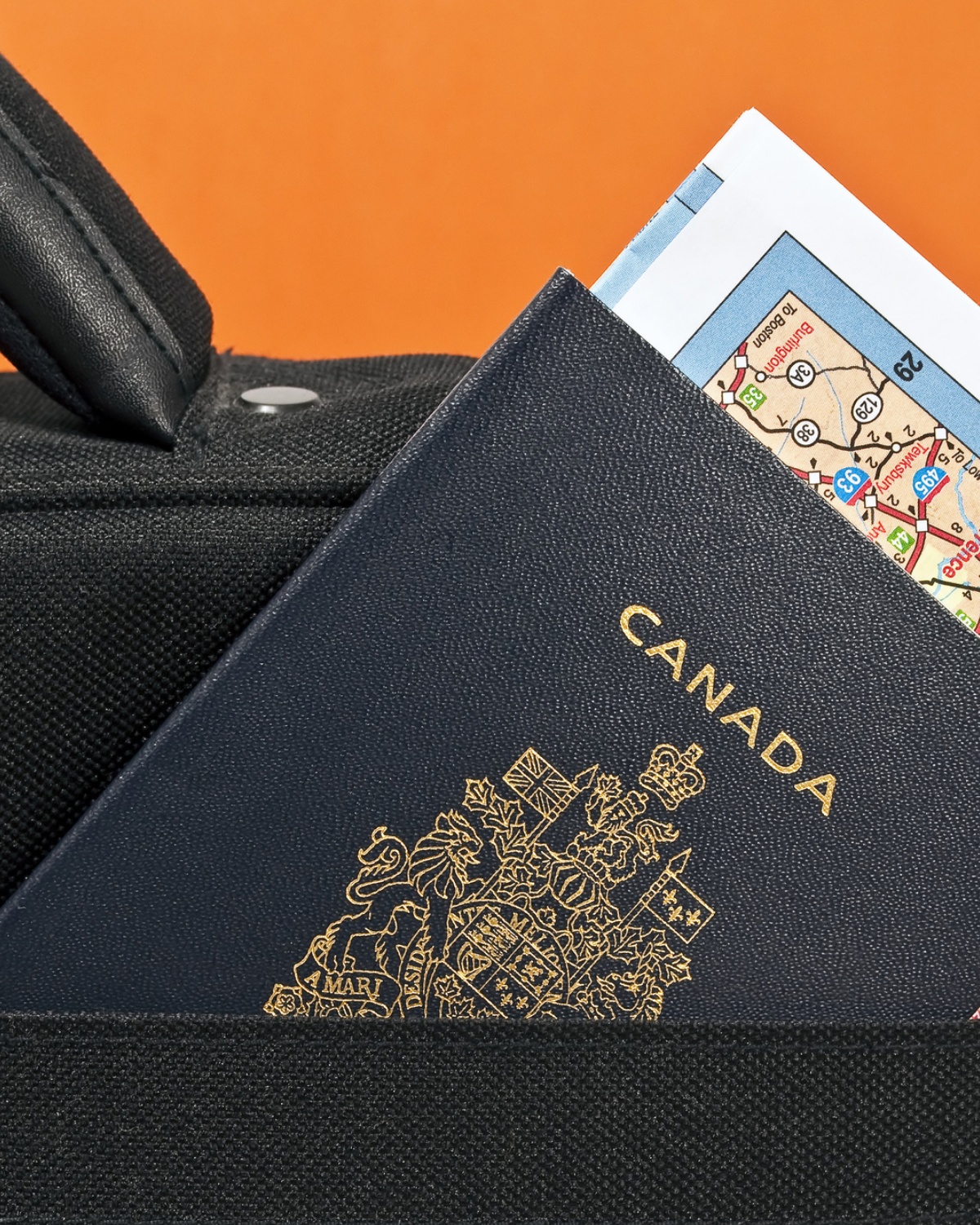Settle in Canada

Canada immigration offers numerous benefits to individuals and families who choose to move and settle in the country. Some of the key advantages include:
- Strong Economy: Canada has a stable and prosperous economy, providing ample opportunities for employment, entrepreneurship, and economic growth.
- Quality of Life: Canada consistently ranks high in global quality of life indices due to its excellent healthcare, education systems, public services, and safety.
- Multicultural Society: Canada is known for its welcoming and diverse culture, which celebrates and embraces people from various backgrounds and nationalities.
- Universal Healthcare: Permanent residents and citizens of Canada have access to the country's publicly funded healthcare system, ensuring comprehensive medical services without excessive financial burdens.
- World-Class Education: Canada boasts some of the best universities and educational institutions globally, making it an attractive destination for students seeking top-notch education.
- Social Benefits: Immigrants may be eligible for various social benefits, including unemployment insurance, family allowances, child benefits, and pension plans.
- Safe Environment: Canada is considered one of the safest countries in the world with low crime rates and a strong rule of law.
- Immigration Pathways: Canada offers multiple immigration pathways, including Express Entry, Provincial Nominee Program (PNP), and Family Sponsorship, providing flexibility for individuals with different qualifications and circumstances.
- Pathway to Citizenship: Permanent residents have the opportunity to become Canadian citizens after meeting residency requirements, offering a chance to enjoy all the privileges and rights of citizenship.
- Strong Support for Newcomers: The Canadian government and various organizations actively support newcomers with settlement services, language training, and integration programs.
- **Employment Opportunities: Canada has a growing job market with demand for skilled workers in various sectors, providing opportunities for career advancement and professional growth.
- Entrepreneurship and Innovation: Canada encourages entrepreneurship and offers programs for entrepreneurs and startups, fostering innovation and economic development.
- Beautiful Natural Environment: Canada's vast and stunning landscapes offer recreational opportunities, outdoor activities, and a high quality of life for nature enthusiasts.
- Global Mobility: Canadian permanent residents and citizens enjoy visa-free or visa-on-arrival access to many countries worldwide, facilitating international travel.
- Inclusive Society: Canada promotes inclusivity and equality, fostering a sense of belonging for immigrants and diverse communities.
It's essential to keep in mind that moving to a new country involves challenges and adjustments, but Canada's comprehensive immigration system and welcoming environment make it an attractive destination for individuals seeking new opportunities and a better quality of life.


Can I enter Canada on tourist VISA and work:
As of last update in September 2021, it was possible for certain individuals to enter Canada on a tourist visa (visitor visa or electronic travel authorization - eTA) and later apply for a work permit under specific circumstances. However, the rules and regulations regarding immigration and work permits may change over time, So we recommend checking the official website of Immigration, Refugees, and Citizenship Canada (IRCC) for the most up-to-date and accurate information.
As of latest update, here are some key points to consider and you can check Canada Immigration border control official website too :
https://www.canada.ca/en/immigration-refugees-citizenship/news/notices/visit-to-work.html

Visitors can continue to apply for work permits inside Canada with temporary policy extended by 2 years
Ottawa, February 28, 2023— Foreign nationals who are in Canada as visitors and who receive a valid job offer will continue to be able to apply for and receive a work permit without having to leave the country. Visitors applying under this public policy who held a work permit within the last 12 months will also continue to be able to request interim work authorization to begin working for their new employer more quickly. Set to expire today, this COVID-era temporary public policy has been extended by 2 years, until February 28, 2025.
- Visitor Status: When you enter Canada on a tourist visa (visitor visa or eTA), you are typically granted temporary visitor status for a specific duration, usually up to six months. During this time, you are not allowed to work in Canada.
- Work Permit Eligibility: In some cases, individuals on visitor status in Canada may be eligible to apply for a work permit from within the country. However, to be eligible for a work permit, you generally need to meet specific criteria, such as having a valid job offer from a Canadian employer, qualifying for one of the work permit exemptions, or being eligible for a work permit under a specific program like the International Experience Canada (IEC) program.
- Work Permit Application Process: If you meet the eligibility criteria for a work permit while in Canada as a visitor, you can apply for the work permit through the appropriate channels, such as the online application portal of IRCC. Note that there may be specific procedures and requirements depending on the type of work permit you are applying for.
- Dual Intent: It's essential to be aware of the concept of "dual intent." If you apply for a work permit while on visitor status, immigration officers may assess whether you have a genuine intention to only visit Canada temporarily as a tourist or if you also intend to remain in Canada to work. Having dual intent is generally acceptable when applying for certain types of work permits.
- Work Permit Processing Times: Processing times for work permits can vary depending on the type of work permit and other factors. It's advisable to check the current processing times on the IRCC website before making any travel or work arrangements.
Remember, immigration laws can change, and the information provided here may no longer be current. To avoid any misunderstandings or complications, it's best to consult the official IRCC website or seek advice from a qualified immigration consultant or legal representative before making any decisions or plans related to visiting Canada and applying for a work permit.
 Documents Checklist for Canada Visitior Visa
Documents Checklist for Canada Visitior Visa
Benefits of studying in Canada
Education in Canada is highly regarded globally and is known for its quality, accessibility, and diversity. The Canadian education system encompasses both public and private institutions at all levels, offering a wide range of programs and opportunities for students. Here are some key aspects of education in Canada:
- Strong Educational Institutions: Canada is home to several world-renowned universities and colleges that consistently rank high in global university rankings. Some of the top universities in Canada include the University of Toronto, McGill University, and the University of British Columbia.
- Public Education: The Canadian education system is primarily publicly funded, providing free education for Canadian citizens and permanent residents up to grade 12.
- Provincial Control: Education in Canada is mainly the responsibility of the provinces and territories, resulting in some variation in curriculum and policies across different regions.
- Universities and Colleges: Canada offers a wide range of programs, including undergraduate and postgraduate degrees, diplomas, certificates, and vocational training through universities, colleges, and technical institutes.
- Research Opportunities: Canadian universities are known for their research contributions and offer numerous opportunities for students to engage in cutting-edge research across various fields.
- International Students: Canada attracts a significant number of international students due to its high-quality education, multicultural environment, and welcoming immigration policies.
- Affordability: Compared to some other popular study destinations, the cost of education in Canada is relatively affordable, making it an attractive choice for international students.
- Language Options: While English is the primary language of instruction in most institutions, there are also many French-language institutions, particularly in Quebec.
- Student Support Services: Educational institutions in Canada offer various support services for students, including counseling, career guidance, health services, and academic support.
- Safe and Inclusive Environment: Canada is known for its safe and inclusive society, providing a welcoming atmosphere for students from diverse backgrounds.
- Co-op Programs: Many Canadian institutions offer co-operative education (co-op) programs, allowing students to gain practical work experience related to their field of study.
- Student Exchange Programs: Canadian universities often have partnerships with institutions around the world, offering students the opportunity to participate in exchange programs and study abroad.
- Post-Graduation Work Permits: International students who complete their studies in Canada may be eligible for a post-graduation work permit, allowing them to gain valuable work experience in the country.
- Pathway to Permanent Residency: Canada's immigration system provides pathways for international students to transition from study permits to permanent residency if they meet certain criteria.
Overall, education in Canada provides a platform for personal and intellectual growth, offering students a chance to develop their skills, pursue their passions, and prepare for successful careers in a diverse and dynamic global environment.


Healthcare in Canada:
Healthcare in Canada is a publicly funded, universal healthcare system known as "Medicare." It is one of the key pillars of Canadian society and is highly regarded for its accessibility and coverage. Here are some essential aspects of healthcare in Canada:
- Universal Coverage: The Canadian healthcare system provides essential medical services to all Canadian citizens and permanent residents regardless of their income or employment status. This ensures that all individuals have access to healthcare services when needed.
- Publicly Funded: Healthcare in Canada is primarily funded through taxes collected by the federal and provincial/territorial governments. This funding model helps ensure that basic medical services are available to all residents without direct charges at the point of care.
- Provincial Responsibility: Although the Canadian healthcare system is guided by federal principles, the provinces and territories have the responsibility to administer and manage their respective healthcare systems. This results in some variations in healthcare delivery and services across different regions.
- Medical Services Coverage: The publicly funded healthcare system covers essential medical services, including doctor visits, hospital stays, diagnostic tests, surgeries, and some medical procedures. However, certain services, such as prescription medications and dental care, may not be fully covered and may require additional private insurance or out-of-pocket payments.
- Family Doctors (General Practitioners): Canadian residents typically have a family doctor or a general practitioner who serves as their primary care provider. Patients can visit their family doctor for routine check-ups, consultations, and referrals to specialists when necessary.
- Wait Times: While Canada's healthcare system provides universal coverage, some regions and medical services may experience wait times for non-emergency treatments or specialist consultations. Efforts are continually made to reduce wait times and improve access to timely care.
- Emergency Care: Emergency medical services and hospital care for critical conditions are readily available to all residents without any direct costs at the point of care.
- Health Insurance Cards: Canadian residents are issued health insurance cards by their provincial or territorial government. These cards serve as proof of coverage and are presented at medical facilities when seeking healthcare services.
- Private Healthcare: While the majority of healthcare services are publicly funded, some Canadians choose to purchase private health insurance for services not covered by the government system or for faster access to certain medical treatments.
- Pharmaceutical Coverage: Prescription medication coverage varies across provinces and territories. Some regions offer partial or full coverage for certain medications, especially for vulnerable populations like seniors and low-income individuals.
- Focus on Preventative Care: The Canadian healthcare system emphasizes preventative care and public health initiatives to promote overall well-being and reduce the burden of chronic diseases.
Despite some challenges, Canada's universal healthcare system remains a point of pride for many Canadians, as it ensures that essential medical services are accessible to all residents, promoting a healthier and more equitable society.


Tourism in Canada
Tourism in Canada is a vibrant and diverse industry, attracting millions of visitors from around the world every year. The country's stunning landscapes, rich cultural heritage, and various outdoor activities make it a popular destination for travelers. Here are some key highlights of tourism in Canada:
- Natural Beauty: Canada is known for its breathtaking natural beauty, including majestic mountains (Rocky Mountains and the Coast Mountains), pristine lakes (Lake Louise and Moraine Lake), stunning coastlines (Atlantic and Pacific), and vast wilderness areas like national parks (Banff, Jasper, and Pacific Rim).
- Wildlife Watching: Canada offers excellent opportunities for wildlife enthusiasts to observe iconic species such as bears, whales, moose, and eagles in their natural habitats.
- Cultural Diversity: Canada's multicultural society celebrates a wide range of cultural festivals, cuisines, and traditions, providing tourists with a rich and diverse experience.
- Vibrant Cities: Cities like Toronto, Vancouver, Montreal, and Quebec City offer a mix of modern amenities, historical landmarks, vibrant arts scenes, and diverse culinary offerings.
- Adventure Tourism: Canada is a haven for adventure seekers, with activities such as skiing and snowboarding in the winter, hiking and camping in the summer, and water sports along its coastlines.
- Northern Lights: The northern regions of Canada, particularly Yukon, Northwest Territories, and Nunavut, offer a chance to witness the mesmerizing Northern Lights (Aurora Borealis) during certain times of the year.
- Cultural and Historical Sites: Canada has numerous UNESCO World Heritage Sites, including Old Quebec, Lunenburg, and Head-Smashed-In Buffalo Jump, which showcase the country's rich history and cultural significance.
- Festivals and Events: Throughout the year, Canada hosts various festivals and events celebrating music, film, art, and culture, attracting both locals and tourists.
- Culinary Tourism: Canada's culinary scene has gained international recognition, with diverse regional cuisines and a focus on fresh, local ingredients.
- Wine Tourism: Regions like the Okanagan Valley in British Columbia and the Niagara Peninsula in Ontario offer wine enthusiasts the chance to explore vineyards and taste award-winning Canadian wines.
- Accessibility: Canada is well-connected by air, making it easily accessible from around the world. The country also has a well-developed transportation system, making it convenient for tourists to travel within the country.
- Safe and Friendly: Canada is known for its friendly and welcoming people, contributing to a safe and enjoyable travel experience.
- Sustainable Tourism: Canada places emphasis on sustainable tourism practices to preserve its natural beauty and cultural heritage for future generations.
- Film and TV Tourism: Many tourists visit locations in Canada where popular films and TV shows were shot, such as locations used in "The Lord of the Rings" trilogy and "Game of Thrones."
From exploring national parks to experiencing vibrant city life, from immersing in indigenous culture to witnessing natural wonders, tourism in Canada offers a diverse range of experiences that cater to various interests and preferences.
THINKING WHETHER ELIGIBLE OR NOT?
Check Your Immigration Eligibility
Please Fill Up The Form To Get Our Free Immigration Consultation. We’ll get in touch with you.

